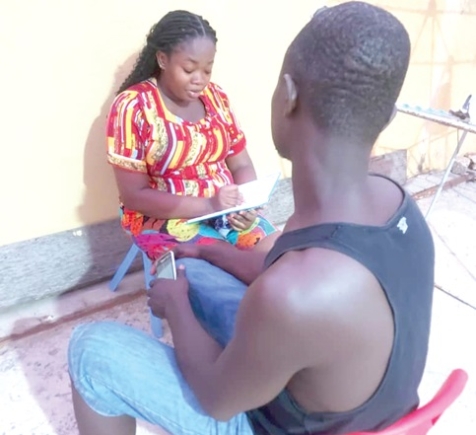
Marrying the dead - Man shares gruesome experience
It’s been over a year since Lawrence Nsia (not his real name) was compelled to marry the corpse of his fiancée who died suddenly after collapsing at home.
Advertisement
The couple who had lived together at their rented chamber and hall apartment in Accra for five years had a year-old child. When his fiancée died, her family insisted that he married her as he had taken advantage of her for five years without performing any marriage rites.
According to her family, the treatment meted to their daughter was “Kwasiabuo” — taking her for a fool and so, she must be appeased before burial. In a chat with The Mirror in Accra last Monday, Mr Nsia recounted that it took several weeks of deliberation between his family and that of his fiancée before they agreed that he should pay a sum equal to the items needed for a traditional marriage ceremony.
“They said per their customs, I was supposed to buy all the items on their engagement list, pay her bride price and wed her corpse in the presence of both families,” Mr Nsia who could hardly string a sentence without rubbing his hands on his head told this reporter.
He said he only agreed to the interview so his story would serve as a deterrent to other young couples who were co-habiting. Although his “punishment” was reduced to only paying money, he said, he struggled to raise the said amount as he had spent most of his savings on medical bills when their child was born prematurely months before his fiancée’s death.
“We had plans of marrying and had started saving towards that when she got pregnant. Then, we decided to have the marriage ceremony when she was delivered of her baby.

Our reporter, Efia Akese, interviewing Mr Nsia
Unfortunately, she went into labour three months before her due date and the baby was admitted at the neonatal intensive care unit (NICU) for three months,” he narrated. He said the complications during her pregnancy and bills from the mother and baby’s admission emptied his accounts.
“She had to go through an emergency caesarean section which was expensive. The NICU also drained us financially and so when they were both discharged, we had no savings left to go ahead with the marriage ceremony as planned.”
Grieving
Mr Nsia maintained that he was well but his gestures and sad eyes gave him away. He told this reporter that he had plans to go to his hometown to perform some final rites to sever the relationship between him and his dead fiancée.
Asked if he had support from his relatives, he said it was his mother, who gave him some herbs to bath with when the incident occurred. The family of his fiancée took their one-year-old child to live with them and his (Nsia’s) cousins stayed with him for three days.
His coping mechanisms have been hanging out with friends and taking up more work. “It’s been a difficult period; I was grieving the loss of a spouse and also troubled about how to raise money to marry and bury her. I also had to provide for the upkeep of our son, all from my meagre income as an electrician.
Some people who needed my services were not willing to give me the job because they thought I was grieving and needed time to heal but I also needed the money. Also, the work took my mind off my plight,” he explained.
Cohabiting and customs
In an interview with a marriage counsellor and relationship expert, Dr John Boakye, he said cohabitation, which refers to two individuals living together in a domestic partnership without being married, although an old practice, had become popular.
He explained that some young couples decided to cohabit to know each other better and establish some financial security before marriage. He said currently, the law made some provisions for couples cohabitating and so in the event of death, there was a legal way to allocate properties if any.
Dr Boakye said he was aware that in some Akan settings, it was common to see family members insist on men performing the traditional marriage rites of a woman they cohabitated with when she died.
“I know that they will insist on “Ti nsa” which is the dowry before they allow the man to perform any burial rites. In most instances, the families of the men agree to these terms for peace to prevail,” he explained.
Psychological effects
The Public Relations Officer of Ghana Psychological Association (GPA), Dr Isaac Newman Arthur, in an interview with The Mirror, said such traditional practices only made grieving worse.
He said even for people who were legally married, some of the rites they were tasked to perform following the death of their spouses made things worse. In such instances, he said, families must find a good mediator to speak on their behalf so some of these rites are cancelled.
“Funerals come with emotional and financial burdens so adding these traditional requirements only worsens the situation. A grieving person needs help and not judgement,” he added.
Writer’s email: [email protected]



